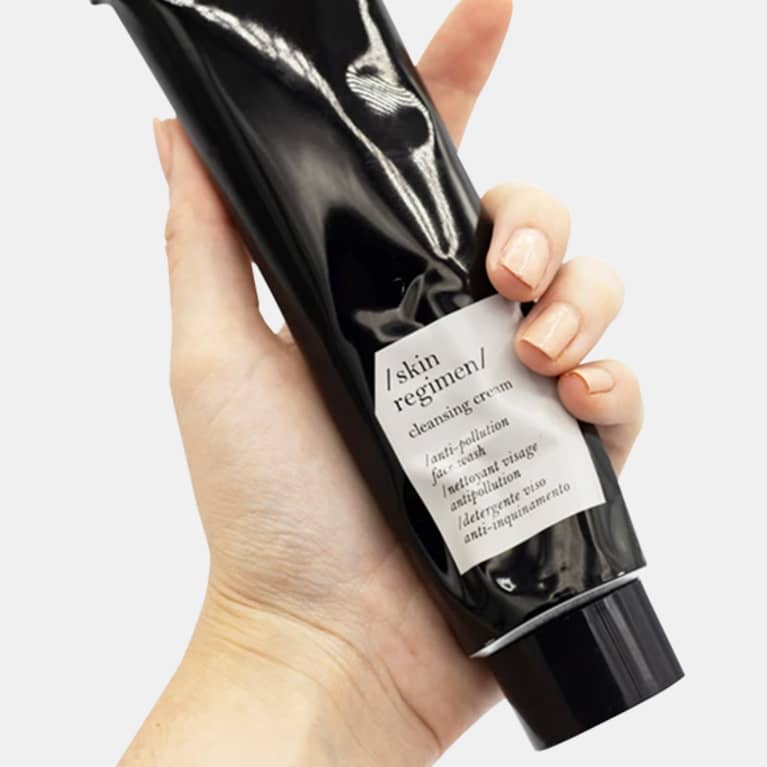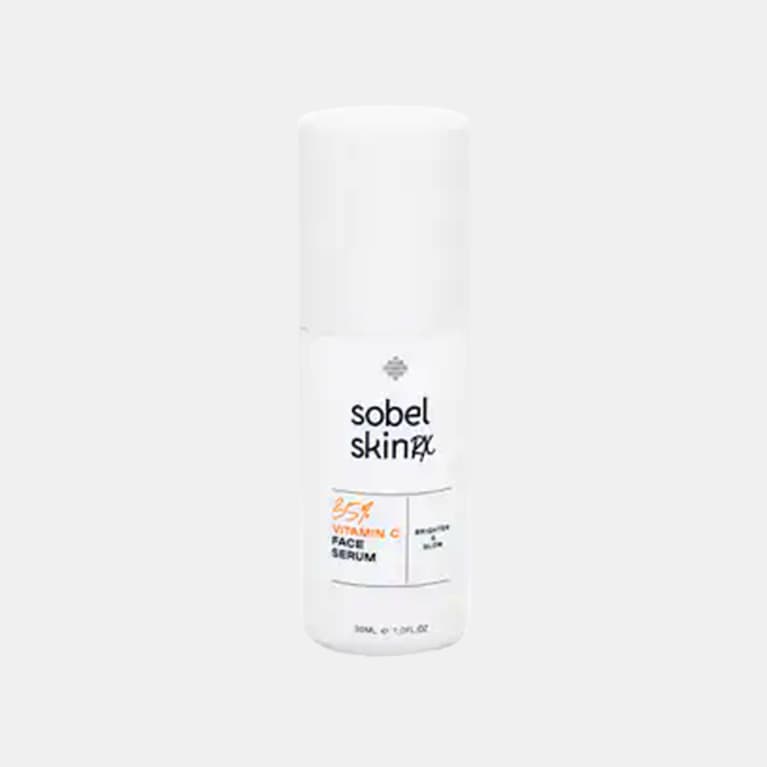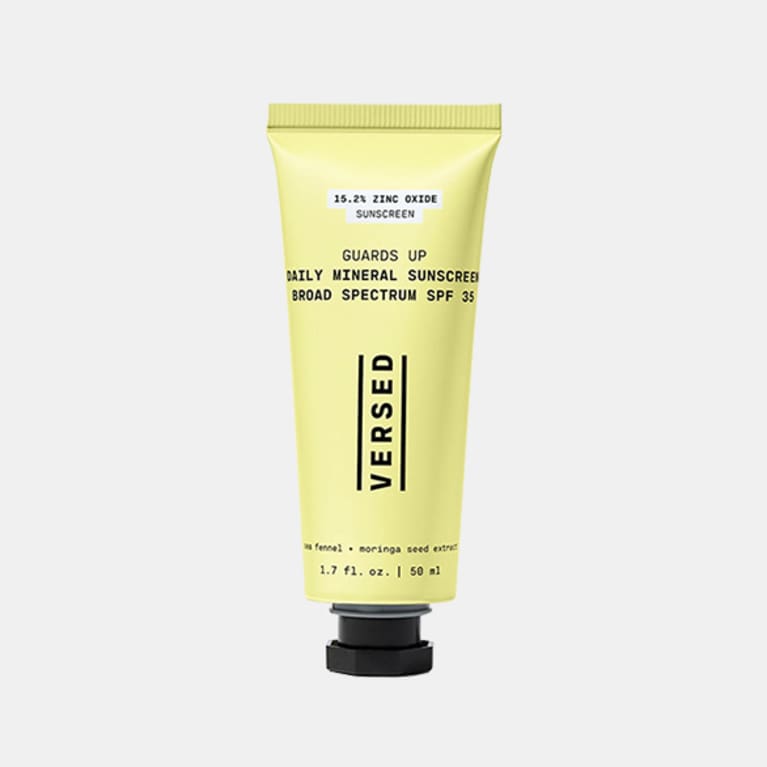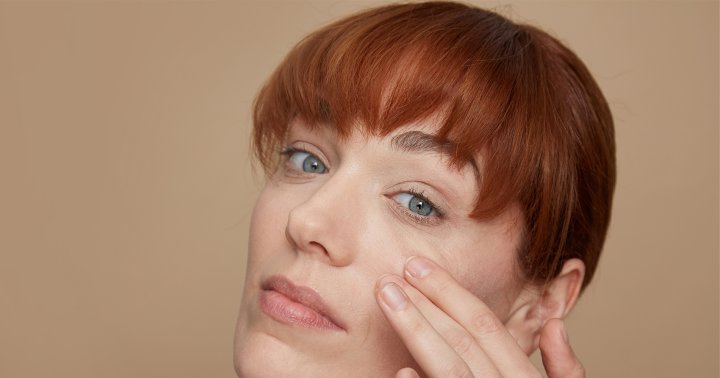If You've Been Exposed To Wildfire Smoke, Here Are 6 Derm Tips To Calm Skin
Here's how to protect your skin from the increase in smoke exposure, as well as calm any irritation after the fact.


Our editors have independently chosen the products listed on this page. If you purchase something mentioned in this article, we may earn a small commission.
Last updated on July 21, 2021
In terms of things to think about during the most recent West Coast wildfires, skin care does not (and should not) top the list. Although, it does make sense some would ponder skin health after exposure to such elements—air pollution does affect your skin over time, and smoke can be a large part of that equation. Not to mention, air quality all across the country has been affected by the disasters—making this not just a Western state issue.
Smoke contains particulate matter, a type of air pollution that's small enough to get into your pores and cause free radical damage—which, as we know, ultimately leads to dull skin, an uneven tone, and wrinkles down the line. The soot and ash can also clog your pores and cause breakouts, says board-certified dermatologist Howard Sobel, M.D., founder of Sobel Skin. "If you have sensitive skin, are acne-prone, or have a skin condition such as rosacea, eczema, or psoriasis, the smoke exposure can also cause flare-ups of these conditions," he tells mbg.
Here's how to protect your skin from the increase in exposure, as well as calm any smoke-induced irritation after the fact. It's not the only avenue to focus on in terms of mentally and physically recovering from these disasters (not by a long shot), but it is something you can take into your own hands:
1. Always cleanse your face at night.
How often you wash your face is ultimately up to personal preference—some love a morning cleanse; others find it way too drying. But you should always, always give yourself a cleanse before crawling into bed: "If you only want to do it once a day, do it at night so you can take all the pollution off before you go to sleep," board-certified dermatologist Jeanine Downie, M.D., previously tells us.
That's because bacteria, sweat, and overall daily grime can build up on your skin and and cause inflammation. Soot and smoke only add to that buildup (even if your face doesn't necessarily look dirty), so washing every night becomes even more crucial.
2. Introduce antioxidants to your routine.
"Antioxidants are the No. 1 skin care product to add to your routine if you have been exposed to smoke," Sobel says. These stabilize the free radicals that lead to oxidative stress (read: skin aging and loss of collagen), so incorporating antioxidants into your routine can support collagen levels, limit pigmentation, and reduce inflammation. Sobel recommends vitamin C and niacinamide, as these can simultaneously brighten up and smooth the skin.
3. Always wear sunscreen.
While limiting your smoke exposure right now may be difficult to control, you can protect yourself from other sources of oxidative stress—namely, UV exposure.
In case you need a briefer: UV radiation also triggers cell damage, which leads to some less-than-favorable signs of aging—think fine lines, sun spots, and sagging skin. That's why wearing sunscreen every day—even if the sky is hazy—is crucial. We're partial to a non-nano mineral option, as these have been deemed safest for skin and the environment (and there are more than a few formulas that don't leave a white cast). Additionally, zinc oxide (a SPF ingredient we often recommend) as soothing properties since it's a mineral.
4. Cover up your skin, if you can.
If you do live on the West Coast and are worried about some lingering soot, Sobel suggests wearing long-sleeve shirts and pants when you venture outside for the time being; the fabrics can keep your skin somewhat protected from the elements. As for your face, you should be wearing a mask anyway, so it can help protect your skin as well.
5. Strengthen the skin barrier.
As Sobel mentioned, smoke exposure can exacerbate sensitive skin, rosacea, eczema, and psoriasis—all of which are triggered by a compromised skin barrier.
The game plan? Nourish your skin with ingredients shown to strengthen skin barrier function—ingredients like ceramides, squalane, colloidal oat, and manuka honey are all skin-supporting players that can quell inflammation and feed your skin with healthy lipids. You might also want to focus on balancing your skin's microbiome: We've only scratched the surface in terms of research, but it's looking promising that pre-, pro- and postbiotic products can help improve your skin's flora. The good news is that fermented natural ingredients like yogurt are great DIY options.
6. Be environmentally conscious.
Perhaps not a skin care tip (although around here we always say that everything is skin care!), but one way you can help your skin long term is to help the environment. Like it or not, environmental changes can and will affect your skin and overall health. We've already seen this happening. The increased temperatures may be contributing to an increase in skin cancers, as ultraviolet radiation is becoming stronger. Changes in the weather and biodiversity of the earth may be making our skin more sensitive, and contributing to the rise some skin diseases.
Making broad, substantial shifts in climate change takes collective work from our governments, organizations, companies—and you. Sometimes it may feel like it's too large of an issue too tackle, of course, but don't let that stop you from making more sustainable choices big and small.
You should always contact your derm if you're facing some severe irritation, but these tips can help you protect and soothe smoke-exposed skin. Of course, skin care is usually an afterthought when dealing with such an environmental crisis—not to mention the homes and lives lost throughout the devastation. But once the literal dust settles, you might be wondering how to help your skin brave the impact.
Nowadays it feels like there's not much we can control, but you can control what you put on your skin. For some, that's a comfort worth pursuing.
Try these products:

/skin regimen/ Cleansing Cream
/skin regimen/ Cleansing Cream

Sobel Skin Rx 35% Vitamin C Face Serum
Sobel Skin Rx 35% Vitamin C Face Serum

Versed Guards Up Daily Mineral Sunscreen Broad Spectrum SPF 35
Versed Guards Up Daily Mineral Sunscreen Broad Spectrum SPF 35

 UsenB
UsenB 
































